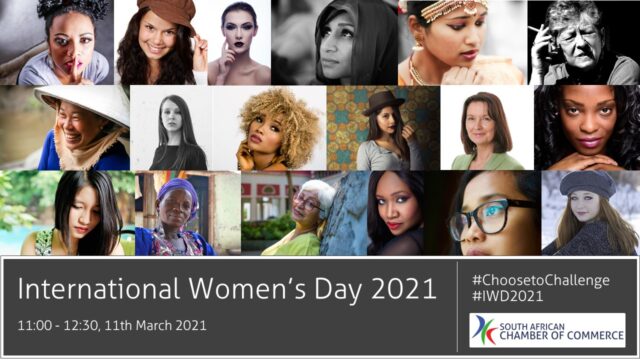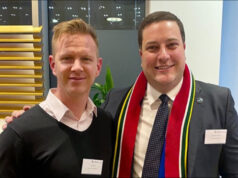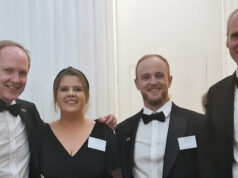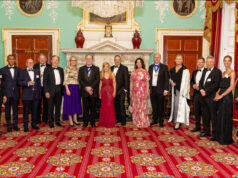On 11th March, the South African Chamber of Commerce UK will be joining a global week of activity to mark International Women’s Day (8th March) with an online event responding to this year’s theme of #ChooseToChallenge through accelerating gender equality in the workplace.
Research by the World Economic Forum’s Global Gender Gap Report 2020 revealed the relative gaps between women and men on health, education, economy and politics will close in 99.5 years based on the current trajectory. Factors affecting the “economic gap” include the low representation of women in managerial or leadership positions; wage stagnation; labour force participation; and income levels. In addition to women’s workforce opportunities being impacted by long-term issues (such as lack of child care infrastructure or access to capital) the report also highlights women are not entering professions, such as engineering or technology, where wage growth is most pronounced.
“Gender parity is fundamental to whether and how economies and societies thrive,” explains the report, “Ensuring the full development and appropriate deployment of half of the world’s total talent pool has a vast bearing on the growth, competitiveness and future-readiness of economies and businesses worldwide.”
For recruitment expert Joanne Macris, Managing Partner at Alexander Hughes, gender stereotyping has personally impacted her working life: “I’ve had to work harder than many male counterparts in my career and often had to ‘burn the candle’ through the night to prove I could do the job.”
Macris feels that women can sometimes lack confidence in their ability to compete in fields where men are stereotypically believed to perform more strongly: “If you are going to put a senior executive into a male-dominated environment, it is critical that they have the tools (such as a mentor) to help them perform.”
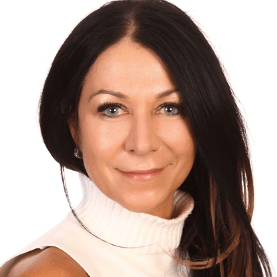
The London-based SA Chamber member also feels that “blind spots”, whereby some men are not aware of how their behaviour feels exclusionary towards women, remains a problem in some teams.
In addition to encouraging women affected by this challenge to draw clear boundaries to define what conduct is unacceptable, Macris also believes human resources should stand ready to support affected female staff. Macris also insists senior leadership must take the lead in shaping the culture of an organisation and cautions this must not be a ‘box ticking’ exercise. Despite ongoing challenges, including “old-boy networks”, she has seen positive change in male-dominated sectors (like construction and tech) over the past five years with some companies achieving gender parity in their workforces. Macris continues to remember the advice of her late uncle: “In the business world always embrace being a woman.”
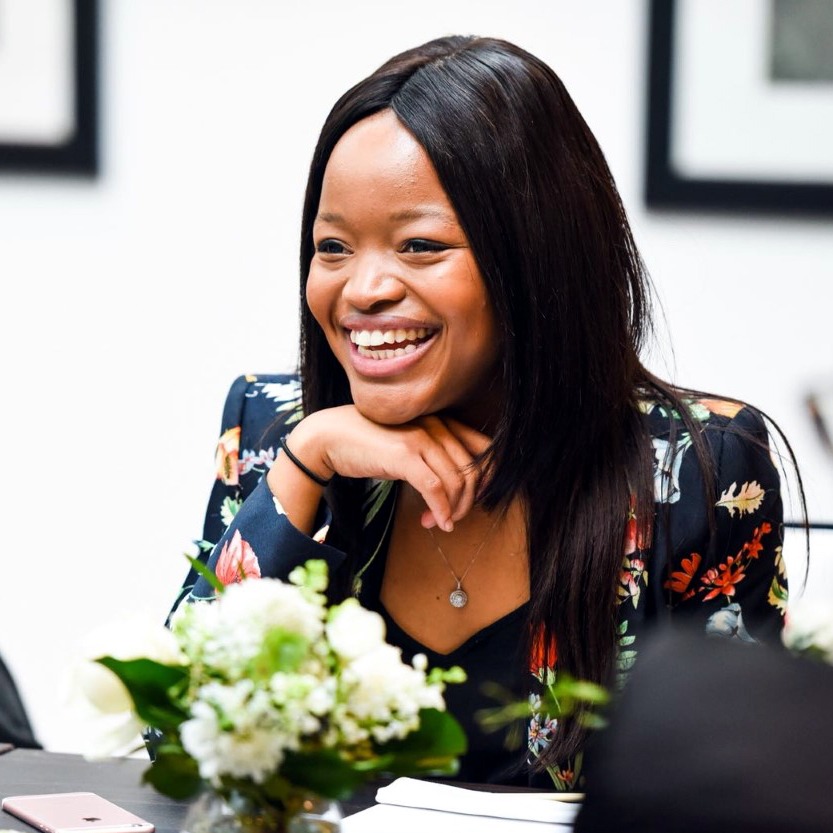
“Diversity is hiring a woman,” says Bonolo Madibe, a sustainability strategist and member of the SA Chamber young professionals’ chapter in the UK, “Inclusion is ensuring you are creating an enabling environment for them to thrive.” Madibe affirms that action and accountability are crucial: “Organisations can get stuck at the point where we continue to have conversations about gender equality but don’t make transformational change.”
She also notes that awareness raising to promote and encourage a general understanding of gender-related challenges must not be ad hoc but cemented into an organisation’s values and practices.
Madibe highlights the disproportionate challenge of childcare faced by some working mothers, especially in the past 12 months: “The pandemic has made it harder for working mothers in terms of managing the conflict between their domestic and professional responsibilities.” She acknowledges this is made equally challenging for employers and employees given the present uncertainties of life in lockdown.
While optimistic that many Millenials are willing to create more inclusive workplaces for the future, she highlights many current issues, such as the disproportionate numbers of women in many countries being laid off or furloughed during the pandemic, reflect underlying social challenges: “I am hopeful in my lifetime that gender equality will improve. But I am aware that inequalities are becoming much stronger in many societies.”
This year’s International Women’s Day theme #ChoosetoChallenge is a reminder to all that we can choose to challenge and call out gender bias and inequality. Promoting gender equality in the workplace will ultimately bring benefits to all genders, to all businesses and to society as a whole. Building gender parity across all forms of economic participation, health, politics and education continues to play a critical part in shaping a fairer, more inclusive and sustainable future for all nations. Challenging gender bias and inequality certainly makes good business sense.
Joanne Macris will be speaking at the Chamber’s Celebrate International Women’s Day virtual event alongside Palesa Madumo, CEO of Vuma Reputation Management; Cheryl Buss, CEO at Absa International; and Ramadimetje Lucy Mashigo, Trustee of the SA Diaspora Ubunye Trust.
Article by Antony Shaw

